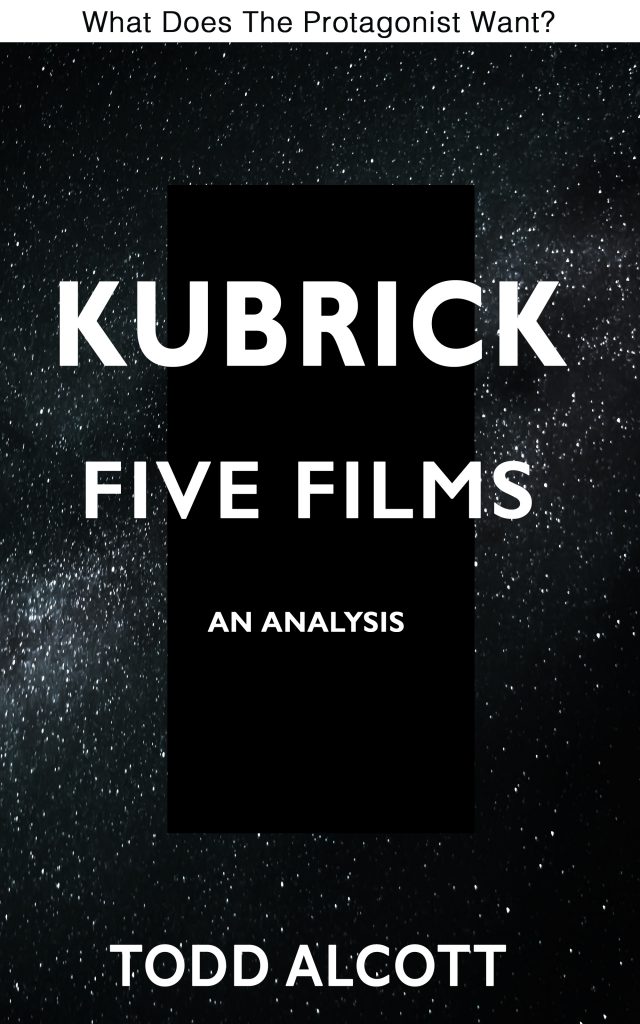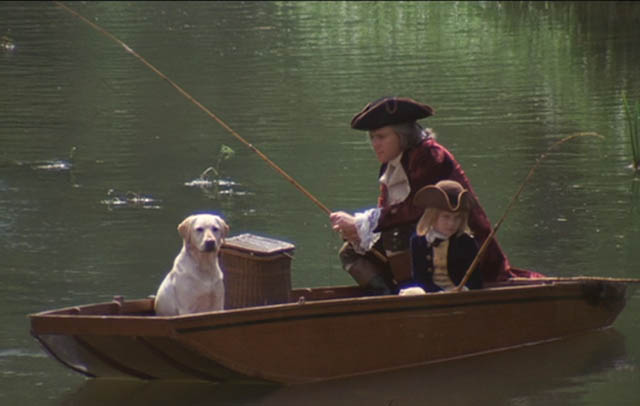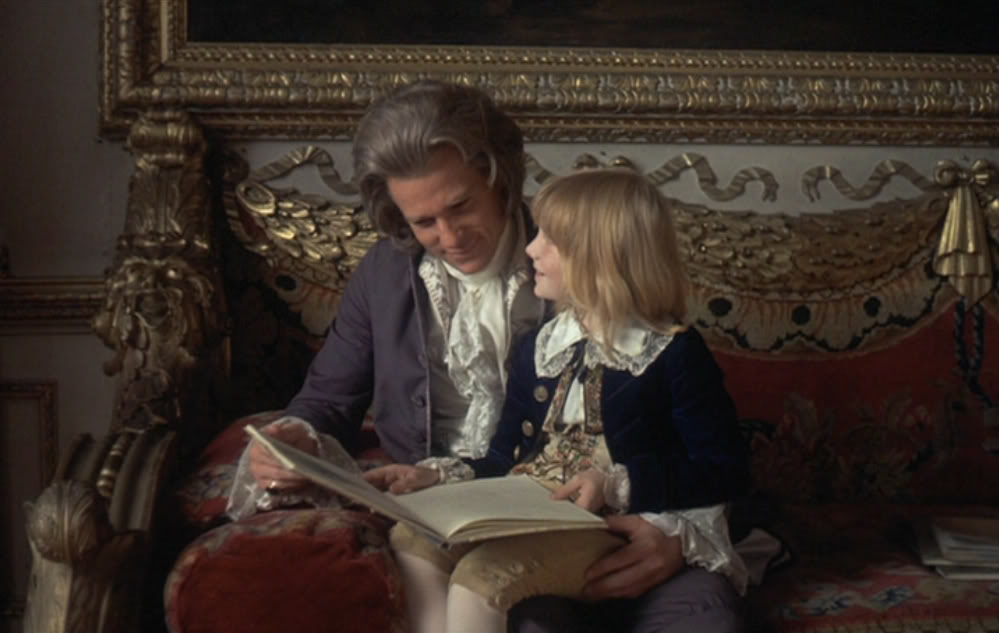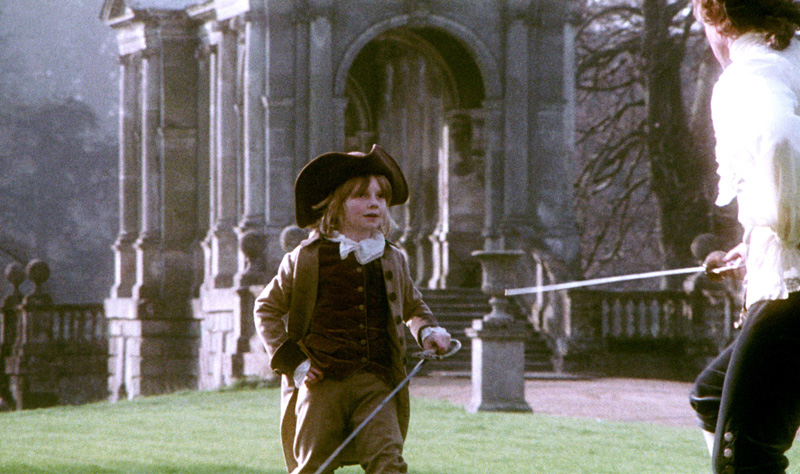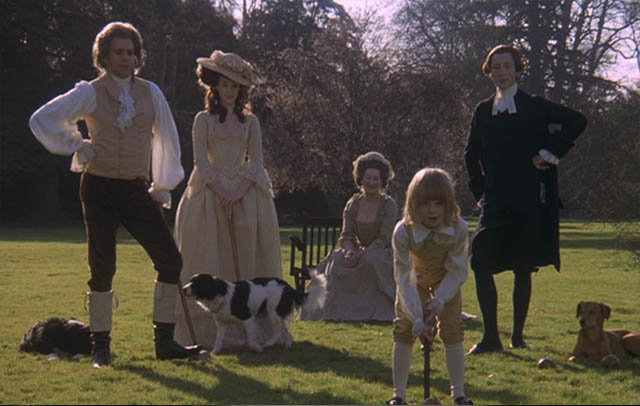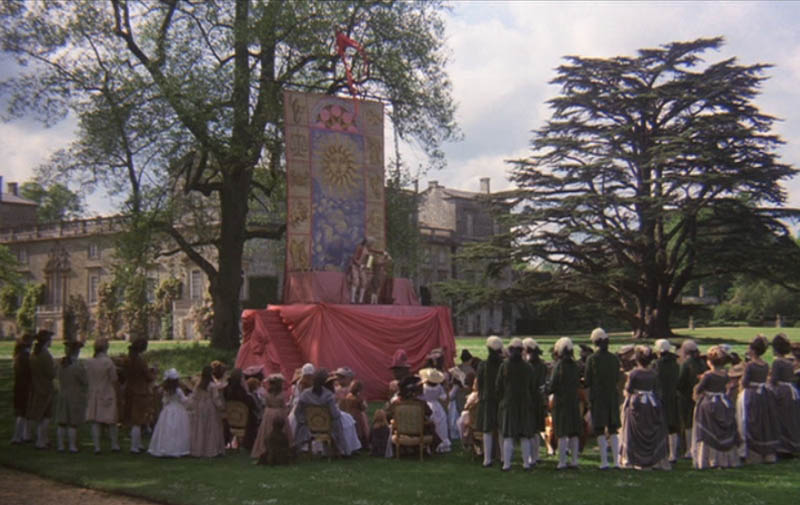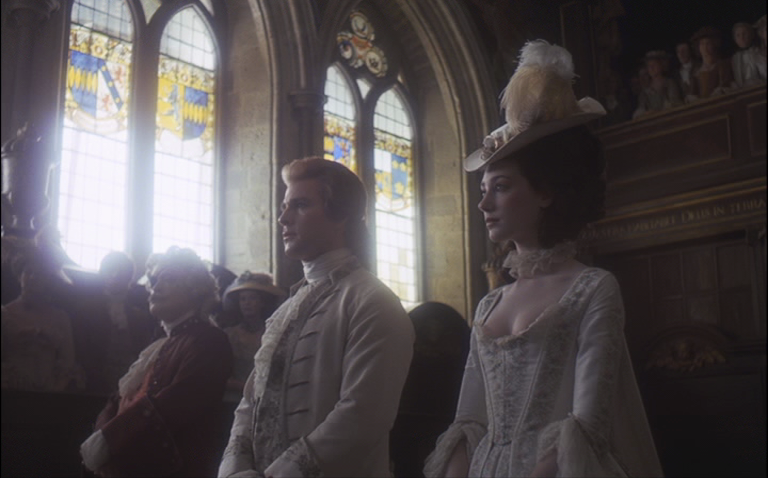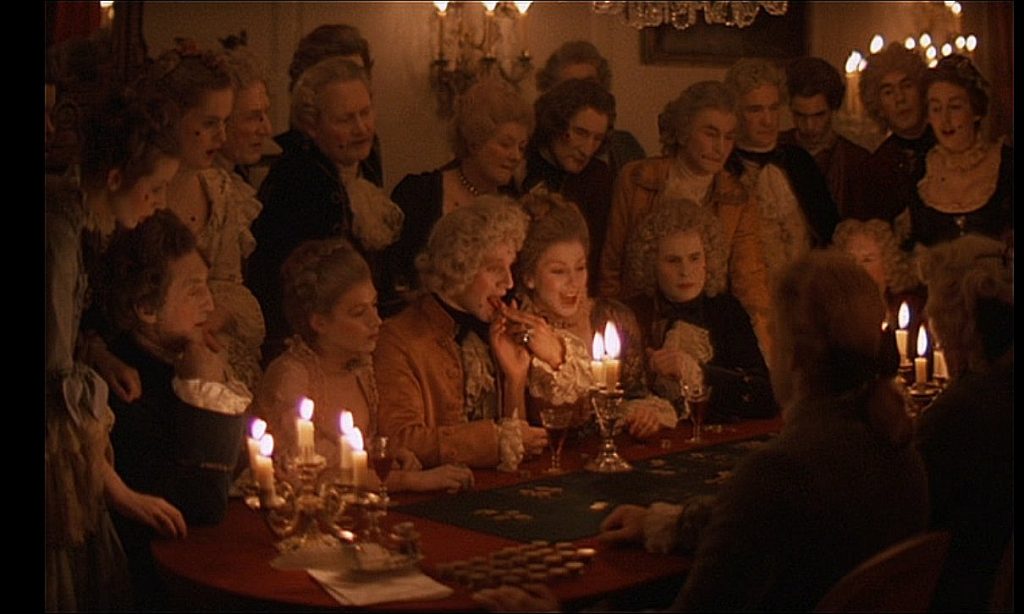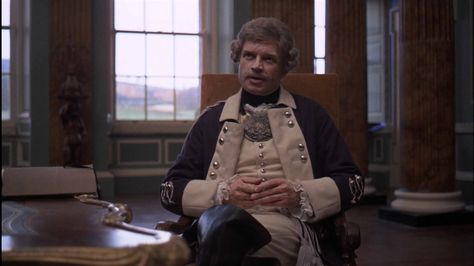The Beekeeper
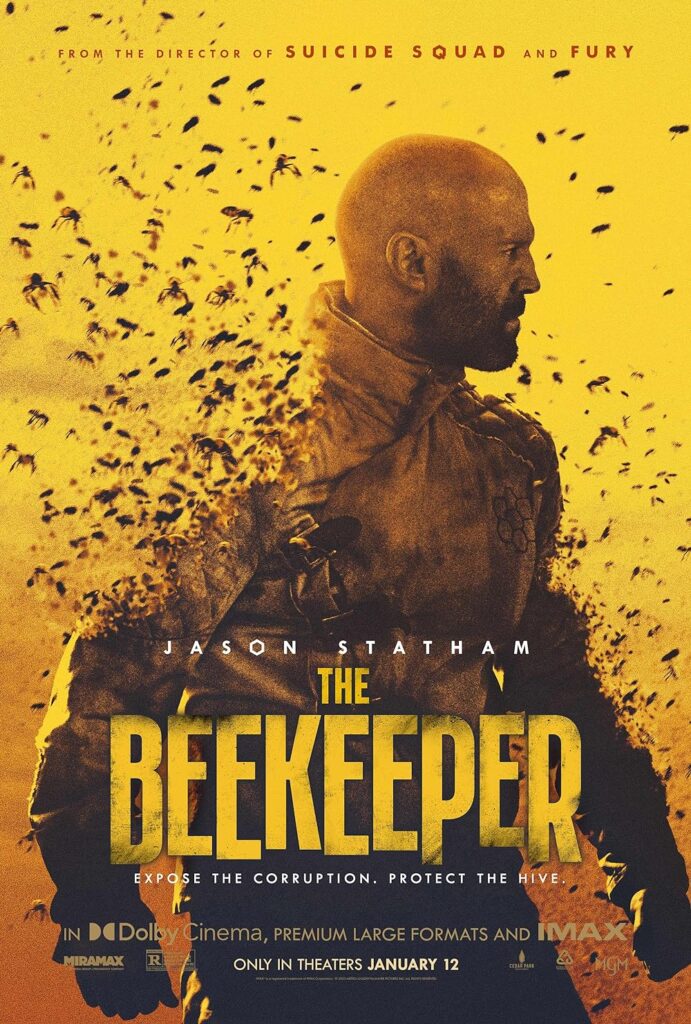 When I was in my 20s I managed a movie theater on 59th St in New York, the Manhattan Twin. It was part part of the City Cinemas chain, which was a clutch of theaters that had been built on the ruins of Dan Rugoff’s bankrupt Cinema 5 theater chain. City Cinemas’ flagship theater, Cinema I, was right around the corner from the Manhattan Twin, but the difference in programming could not have been different. Cinema I would show a movie like Kiss of the Spider Woman or And the Ship Sails On, while the Manhattan Twin would show movies like Police Academy or Splash. As I used to put it, “Cinema I is across the street from Bloomingdale’s, the Manhattan Twin is across the street from a deli called Meat Land.”
When I was in my 20s I managed a movie theater on 59th St in New York, the Manhattan Twin. It was part part of the City Cinemas chain, which was a clutch of theaters that had been built on the ruins of Dan Rugoff’s bankrupt Cinema 5 theater chain. City Cinemas’ flagship theater, Cinema I, was right around the corner from the Manhattan Twin, but the difference in programming could not have been different. Cinema I would show a movie like Kiss of the Spider Woman or And the Ship Sails On, while the Manhattan Twin would show movies like Police Academy or Splash. As I used to put it, “Cinema I is across the street from Bloomingdale’s, the Manhattan Twin is across the street from a deli called Meat Land.”
In the fall of 1984, the Manhattan Twin booked a Charles Bronson vehicle titled The Evil That Men Do. As the manager, it was my responsibility to watch every movie we showed, to make sure the reels were in the right order and the print was presentable. I watched The Evil That Men Do and I didn’t like it. I found it unnecessarily crass, vulgar and cheap, and its violence overly harsh and brutal. I expected it to die a quick death and be replaced on our screen by, maybe, the delightful Steve Martin/Lily Tomlin comedy All of Me.
But The Evil That Men Do didn’t bomb. It wasn’t a huge hit, but it didn’t bomb. The theater was never full, the theater was never even half-full, but the audience came, and it kept showing up. Every time we thought the box office for the picture was going to trail off, it would rally again, never enough to be a smash hit, but enough to keep it in the theater for another week. The movie had legs. Stumpy legs, to be sure, but solid, and they kept moving forward every week. The audience never dropped off, it just remained static, week after week. It opened on September 21 and we were still showing it on Thanksgiving, which turned out to be twice the movie-going day anyone in the theater chain expected it to be. We were short-staffed, because it was Thanksgiving, and we were besieged by hundreds of people all day on our two screens.
I remember, on that long Thanksgiving Day, wondering “Who are these people?” The Evil That Men Do was, at that point, in its ninth week, and here we were, packing them in on a day when everyone should have been at home with their families.
So I watched them as they came out of the movie. They were all older men, men in their late 40s, 50s, early 60s. They never had dates, they always came alone. They were paunchy and saggy, their faces lined and their eyes flinty. They were tired, worn, and dyspeptic. They were working class, dressed in windbreakers and overcoats, with sweaters or sweatshirts over button-down shirts. They were the kind of men I had never thought about for a single second of my life, cab drivers and factory workers, middle-managers and plumbers, shoe salesmen and tradesmen. And they all wanted to see Charles Bronson in The Evil That Men Do.
I don’t remember a single second of The Evil That Men Do, but I can tell you, without looking, what it’s about: a middle-aged assassin is brought out of retirement because a close friend of his has been killed, and he will stop at nothing to murder all the people responsible.
And I thought, well, I don’t like that movie, and I don’t buy that kind of macho bullshit fantasy, but look at the faces of these men walking out of the theater. They love the movie, and they have found something of value in it, and it has made them feel, for a couple of hours, less alone in the world.
Like the Grinch on Christmas Eve, my heart grew three sizes that day, and I became much more forgiving of movies I don’t like. I realized that, while they were not to my taste, that that was okay, because not everything has to be made for me. What is required is that a movie find its audience and give it what it wants.
After that, I started to watch everything we showed, in the theater, with an audience. It didn’t matter what it was, a teen comedy, a romance, a horror movie, if an audience responded to it I wanted to know why. I tossed aside whatever personal preferences I had and paid attention to what the audience was looking for, and spent a lot of time wondering why one movie bombed and another one flourished. I now remember movies from that era as much for their audience’s reactions as for the movies themselves.
The decades flew by, but every once in a while I would stop and think about The Evil That Men Do and the mysterious audience of middle-aged working-class men who turned up, week after week, to watch it, and the bond that a movie creates with its audience, regardless of the quality of the product.
I realized the men who came to see The Evil That Men Do probably felt as though they had all followed the rules set down by the Truman administration: get a job, get married, have kids, buy a house, pay your mortgage, die happy. But life hadn’t turned out that way for them. They all felt shortchanged. They all felt like they had been forgotten. Their kids had moved out, their wives perhaps as well, and they didn’t have a house, they were renting now, and their dwellings were getting smaller and smaller as Reagan’s economy handed more and more of their savings over to plutocrats. And every day, more was being taken from them, just through the process of getting old.
That audience needed a hero. They needed to see a man who was both incorruptible and indestructible, highly intelligent and and expert in both strategic and tactical maneuvers. They wanted to see a man of the highest possible moral character, a man who had been around the world and seen a lot of trouble but who now wants only to live his life in peace, who wants only the leisure to putter around his country house and engage in some kind of hobby — stamp collecting, maybe, or refurbishing a vintage sports car, or building elaborate dioramas of Civil War battles. This man would only want a quiet life where they were free to contemplate the endless tapestry of life’s mysteries, but he would also, secretly, be an unstoppable killing machine who is prepared to exact bloody revenge when he is pushed too far. This hero would talk as little as possible, his primary expression would be through motion, and any dialogue he had should be honed and polished into monosyllabic gems.
That audience was prepared to forgive a movie any amount of ludicrous plot, any number of outrageous contrivances, any display of improbable physics, as long as their stoic, had-enough hero hit his beats, dispensed unadulterated justice, and lived to fight another day.
Anyway, here we are, and it turns out I’m now one of those guys, and I thoroughly enjoyed the completely ridiculous The Beekeeper.
Some thoughts on Elvis (2022)
I was dreading Baz Luhrmann’s Elvis. A long time ago, I had written my own Elvis project, and had done a deep dive into his life and work. I’ve watched a lot of Elvis-related movies (including all 33 of Elvis’s own movies), and the trailers for Luhrmann’s gonzo spectacle were a severe turn-off for me. But enough friends of mine had positive things to say about it that I thought I’d give it a chance.Almost immediately, I fell in love. I have lots and lots of quibbles about this and that, but the important thing is that Luhrmann’s understanding of Elvis, his art, his story, and his place in the American pantheon of great 20th-century artists, is the same as mine.Most people my age and younger experienced Elvis’s career backwards: when I was a child, Presley was a joke, a has-been, a bloated cartoon character adored by yokels and middle-aged women. He wore the gaudy jumpsuits and did his lame kung-fu moves, and recycled his ancient hits with blaring, Vegas arrangements that deprived the music of any of its original power. Elvis was sentimental, hollow and tasteless, and, when he died in 1977, it felt like more of a relief than a tragedy: at last, the empty, spangled parade float of his career was put out of its misery.Most of the movies made about Elvis begin with the same philosophy: start with the spectacle, never the art. In most Elvis projects, Elvis is a pawn, a wild animal, a naive wild card, a crazed lunatic, a wayward soul, a victim of greed, but never a serious artist. Luhrmann’s Elvis is the first project I’ve seen that actually takes Elvis serious as an artist, as a real, honest-to-goodness musician with a vision and artistic goals. It places Elvis in the context of his times, something that’s impossible to do when you start with his jumpsuits and drug use and work backwards.I had a number of misgivings about Austin Butler’s performance in the first hour or so of the movie, but all those doubts evaporated when it came time to the 1968 comeback special, where he not only was able to match (or at least approximate) Elvis’s incredible energy and handsomeness of that time, but also get across the very serious, very important artistic thrust of that show. Because while the show looks like old television to us now, it was absolutely a bolt from the blue in its time, a radical, bizarre, soulful and crucial turning point in Elvis’s career. And yes, Robert Kennedy really was killed while they were shooting the special, and yes, Col Tom really did have a heart attack when Elvis refused to sing Christmas songs in front of a fireplace. The emphasis the movie gives to the creation of that special is pitch-perfect, and the dramatization of events that led to Elvis singing “If I Can Dream,” along with Butler’s pantomime of Elvis’s performance of that number, had me sobbing for minutes on end. Not weeping, or choked up, but openly, audibly sobbing. Elvis’s message for the special was “I am still here, and still relevant,” and he thought it was vital that he close the show with some sort of statement on all the things that were happening in 1968. The fact that he chose “If I Can Dream” not only puts an exclamation point on the show, but also cements his point of view on the world. Everything that Elvis ever dreamed came true, a million times over, so if he could dream of a better world, why couldn’t that dream also come true? The answer is, of course, that Elvis was but a man, a mere singer (how ironic the show was sponsored by Singer), and had no power to shape current events. The repeated question, “why can’t this happen,” shows the song to be a prayer, both a pleading and an insistence. The repetition of the question reveals that the singer knows the answer but must still ask the question. Luhrmann’s movie gets across all that artistic turmoil without ever having to state any of it. The same goes for the construction of Elvis’s Vegas shows of 1969: while people my age were repulsed by the 1970s Elvis, Luhrmann’s movie places those decisions in context as well: as deliberate artistic choices made by a valid musical force who was looking for answers. He dressed like a superhero because he thought of himself as Captain Marvel (or Shazam, as he’s called now). (The lightning bolt from his TCB logo was lifted directly from Captain Marvel’s suit.) The splashy Vegas arrangements of ancient blues songs weren’t meant as a cheapening of an authentic musical form, they were meant to spread the message on the largest canvas available, and the movie brilliantly brings those decisions to life, drawing a direct line from Elvis overhearing Arthur Crudup sing “That’s All Right” in a Mississippi whorehouse to Elvis belting it out on the biggest stage in Vegas: not a cheapening, but, in Elvis’s eyes, an exaltation, a spreading of the gospel.As with any bio-pic, events are simplified and motivations are overstated. Luhrmann is, after all, the opposite of a subtle director. Overstatement is the water he swims in. If he wants to make a narrative point, he doesn’t just underline it, he underlines it, in italics, then draws a circle around it, then draws a bunch of arrows pointing to it, then states it again for the people who didn’t catch it the first five times. The difference between Luhrmann and, say, Oliver Stone, another director with a penchant for overstatement, is that Luhrmann understands cinematic narrative in a way that no other director does, and his bag of tricks is vast and endlessly malleable. He compresses time as all bio-pics do, but does it in a dazzling, fluid, exciting way, with tons of information going on all the time in every corner of the screen. His goal is to catch you up in the sheer giddy pleasure of images, over and over again, to get you drunk on the sheer spectacle of ideas unfolding. After seeing his Great Gatsby, I thought, well, that’s not the movie I would have made, but, well, it’s The Great Gatsby, you can’t look at it and say he betrayed the author. He didn’t destroy Fitzgerald, he just put it in neon. Just as Elvis turned the blues into a Vegas spectacle because he wanted to preach to the largest possible crowd, Luhrmann wanted to make sure that Gatsby, a fragile, tender, interior novel about sadness and regret, into a mind-blowing spectacle, because he truly loved the material and wanted people to see it.And, while I can’t say I fully understand what Tom Hanks is doing in the movie, with his bizarre accent and weird prosthetics, his Col Tom is, by far, the most humane, most nuanced portrayal of the old Mephistopheles I’ve ever seen. It still astonishes me that Col Tom referred to himself as “the king of the snowmen,” and had a banner hanging in his office advertising it. How many devils tell you to your face that they are a devil? Even Donald Trump didn’t say “vote for me, I’m a con man here to take your money.” And yet, Col Tom STARTED with that pitch. He introduced himself, advertised himself as a carny man, a man who literally spray-painted sparrows and sold them as canaries. When I wrote my Elvis musical (with incredible songs written by Chuck Montgomery, who also played Elvis), I could not explain in the time given why Col Tom had such a hold on Elvis, so I instead I made him a hypnotist. I gave him a jeweled-top cane that he used like Jafar’s staff in Aladdin. Luhrmann finally gives Col Tom an actual dramatization of his relationship with Elvis, showing him as both the father figure Elvis couldn’t find in his own father, a confidante who understood Elvis’s desperate need for attention, and, most importantly, a man whose only goal was profit. In the great American story of Elvis’s life, Col Tom is the vital component: the capitalist greed that destroys everything it touches.By the end of the movie I was an emotional wreck, not merely because the movie got so much right about the tragedy of Elvis, but because I was seeing a movie that I wish I’d been able to write.
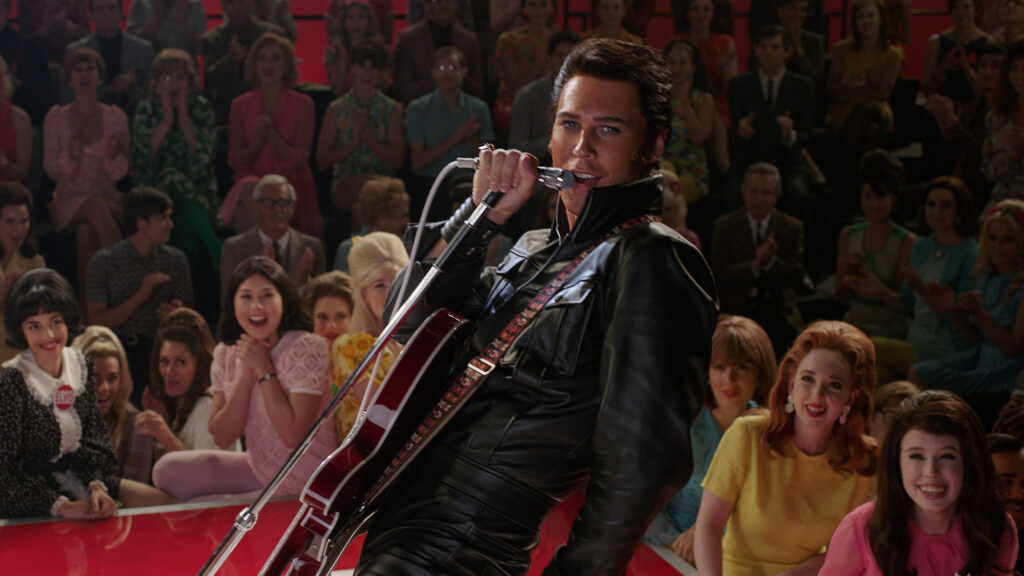
107Shannon Sollman, Robert Sikoryak and 105 others36 Comments4 Shares
The Ballad of Buster Scruggs
Thank you to my faithful followers who have been waiting patiently for my analysis of The Ballad of Buster Scruggs. You’ll have to wait a little longer, but, for those who want a short, sharp, incisive overview, this video is an excellent place to start.
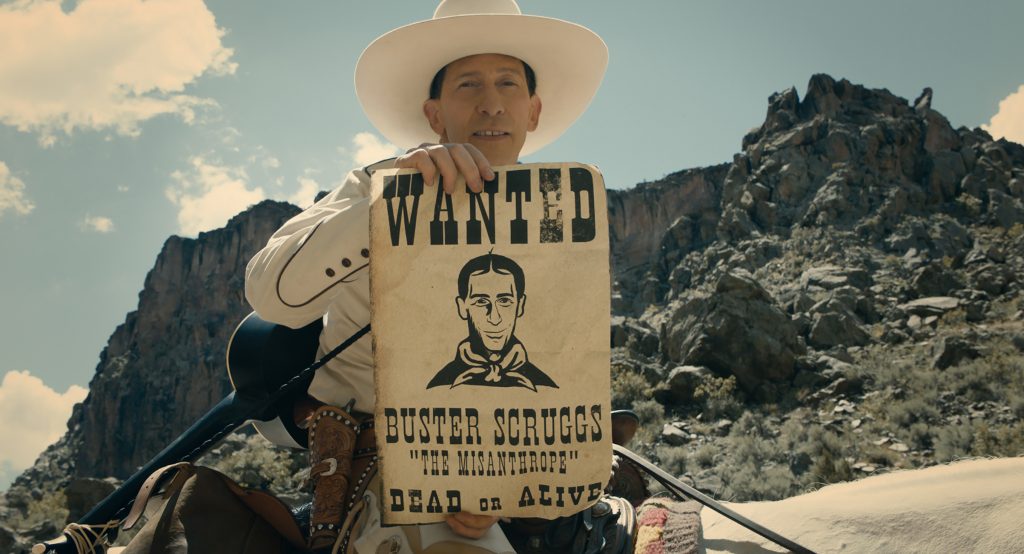
Kubrick book
Hey folks, my new book on Kubrick, gathering my analyses of Dr. Strangelove, 2001: A Space Odyssey, A Clockwork Orange, Barry Lyndon and The Shining is now available where finer books are sold (meaning: Amazon). Pick up a copy for your electronic device, or, if you like paper things, it’s available as a paper thing!
Kubrick: Barry Lyndon part 9
Scene 92-96. Barry’s plans for becoming a gentleman have come to nothing. He still lives in a nice house, still has access to money, still has a beautiful wife (who apparently loves him more than he deserves) but he will never be a true gentleman. His violent streak — that is, his tendency to deliver violence on his own terms, rather than through money or an intermediary — has put an end to that dream forever.
Without social advancement, what does he have left? The answer, oddly enough, is “love.” Barry loves his son Bryan with great abandon. We’re treated to the longest “montage” yet in Barry Lyndon — five scenes of Barry interacting with Bryan and being a loving, indulgent father. He fishes with him, reads to him, teaches him how to fence, plays croquet with him, and takes him horseback riding. The narrator deepens the images with background on how Barry feels about the boy, and also spoils their love by announcing that the boy is doomed to die young.
There’s another way to read the montage, of course — Barry wants social advancement, and he threw that chance away when he kidney-punched his stepson in a packed recital hall. So in order to achieve the gentlemanly status he craves, he employs the oldest trick in the book: he chooses to achieve his goal through his progeny. And while that reading is more cynical, it also indicates that Barry, at this stage of his life, has at least begun to think outside himself, to understand life on a more cosmic level, to see himself as part of a continuum.
Kubrick: Barry Lyndon part 8
Scene 75. As Act VIII of Barry Lyndon begins, we’re treated to a rare explicit time jump. Barry’s son Bryan is now 8 years old and is, it appears, a very happy little boy. Lord Bullingdon, meanwhile, has grown from an anxious little boy to an anxious young man, still sitting at his mother’s knee, still holding her hand, now wearing the white makeup and powdered wig of his station as a young lord.
The scene is Bryan’s eighth birthday party, and all of Lady Lyndon’s friends are there, as well as Barry’s mother. Barry, we could say, has arrived. He’s got access to wealth, he’s got wonderful social status, he’s got a beautiful wife whom he treats terribly, he’s got loads of friends and he’s having sex with every lady who meets his gaze.
Appropriately, the scene illustrating this is a magic show. A magician performs routine sleight-of-hand and conjuring tricks for Bryan as the crowd smiles and applauds, and we’re reminded that Barry’s life is a kind of magic trick of its own. Deception, trickery, showmanship and style got Barry where he is, and the deeper suggestion of the narrative is that everyone there at the party, indeed, everyone in the movie, has achieved their social status through some combination of thuggishness, trickery and deceit.
Kubrick: Barry Lyndon part 7
SCENE 63. We come back from intermission to find a title card announcing that the remainder of Barry Lyndon will be about Barry’s fall from good fortune. The first part of the movie — the first six acts — were about Barry’s rise to wealth and power, and the second part will concern his undoing.
That would make Scene 63, which shows the wedding of Barry to Lady Lyndon, dramatically, the pinnacle of Barry’s joy. He’s gone from being a love-sick middle-class goon to being married to a genuine capital-L Lady. He’s been re-born a number of times so far in the movie, but the wedding is the moment where he has finally, he feels, entered into his true domain: a gentleman of wealth and taste.
We see Barry’s allies in attendance at his wedding: the Chevalier de Balibari and his mother are both there lending their support. If Barry’s mother sees anything untoward in her son’s marriage, she doesn’t show it: she, too, seems to feel that she has finally entered her proper sphere at the mother to a gentleman of wealth and taste.
Reverend Runt performs the ceremony, and Kubrick gives special emphasis on the nature of marriage among nobles in 1773. Marriage, says Runt, is what saves humans from acting “in carnal lust, like brute beasts,” and that marriage is something to be entered into “soberly, and in the fear of God.” We can almost see Barry’s smirk — he’s seen enough of life in the Seven Years’ War to know that men are brute beasts, and enough injustice to know there is no God.
Where are our themes now? Runt addresses violence in its absence, Barry has reached the pinnacle of his social climb, and love, we are meant to gather, is nowhere in evidence.
The scene also suggests the question, what does Lady Lyndon want out of this? Does she think Barry is actually a gentleman, or has he merely succeeded in flattering her to the point where she doesn’t care? As the narrative progresses, her son Lord Bullingdon (here seen staring daggers at Barry during the wedding ceremony) routinely accuses Barry of being, well, of being who he is: a base-born Irish social climber. Lady Lyndon’s husband Charles bellowed the same thing, so it’s hard to imagine that the thought never crossed the Lady’s mind. On the other hand, Lady Lyndon is still young, and, based on the evidence, did not have a satisfying sex life with her husband. The narrative does not say, but one wonders how Lady Lyndon ended up married to Charles in the first place. They have an 11-year-old son, so she must have been quite young when she was married off to Sir Charles. Maybe she was traded to Sir Charles by her own father, who was a social climber much like Barry. Maybe she knows, to some extent anyway, who Barry is and what a fraud he is, and accepts him on face value. In any case, suffice to say, the movie does not dig very deep below the surface of Lady Lyndon’s motivations: she remains, almost entirely, a porcelain doll in a gilded case.
Kubrick: Barry Lyndon part 6
SCENE 54. Barry Lyndon now enters its sixth act. Barry has been a love-struck goon, a British soldier, a fugitive, a Prussian soldier, a Prussian spy, and is now reborn, again, as a high-society gambler. We now find him at the side of his third surrogate father, the Chevalier de Balibari, as he practices his trade of cheating at cards.
How do we feel about Barry now? We’ve just smiled at him and the Chevalier pulling the wool over the Prussians’ eyes with an Ocean’s 11-level switcheroo. Now we see him, with white-powdered face and ultra-fancy dress, helping the Chevalier con a lord who is portrayed as a simpering, preening idiot. It feels to us like Barry has gotten a leg over this business of social climbing, and if he did so by being a liar, a cheat and a thief, well, we’re okay with that, because those rich snobs deserve what they get.
Where are our themes? Well, the narrator informs us that Barry has decided, now and forever, to live life as a gentleman, and he’s now at a gaming table in a royal court, so that’s our theme of social advancement. “Living as a gentleman,” of course, means lying and cheating, which is one of the more trenchant observations of Barry Lyndon. Love enters the scene in the form of Lord Ludd, who is playing against the Chevalier under the handicap of being distracted by numerous comely young royal personages, literally nibbling their fingertips fielding multiple kisses and whispered comments while trying, not very hard, to concentrate on the game, so distracted that he misses the oldest trick in the book, the Chevalier producing a card from up his sleeve. As for violence, Kubrick puts it in the cut as this scene sets up the violence and the next one pays it off.
Kubrick: Barry Lyndon part 5
SCENE 45. Barry Lyndon now enters a transitional kind of act, where Barry transfers from father-figure Potzdorf to father-figure Balibari. He’s saved Potzdorf’s life during the war (why, we do not know) and has ingratiated himself into Potzdorf’s confidence. He declares a few times that he’s loyal to Potzdorf and the Prussian army, and it’s worth considering for a moment whether or not he’s being sincere in those moments. After all, he had no way of knowing that saving Potzdorf’s life would make his fortune. So perhaps he was merely being a decent human being, and perhaps he saw an opportunity for advancement. Which is another way of saying that, again, the three themes of the movie come together in that moment: in a moment of violence, Barry commits an act of love that is also a means to better his social standing.
In any case, here we are, it’s after the war, and Potzdorf recommends Barry for a place in the police force as a kind of 18th-century undercover officer. In one of the very few expository scenes in the entire movie, Potzdorf explains Barry’s new job to him: he is to position himself as an assistant to a local gambling figure, the Chevalier de Balibari, and find out if he is who he says he is. (It’s not made clear what the police’s interest is in Balibari, but, in addition to being a pretender — that is to say, a liar, the ultimate epithet in Barry Lyndon — he is also a card cheat. This is much clearer in the novel.) The remainder of the act is one of the few sustained plot lines in the narrative, and is almost a little 18th-century caper movie.
